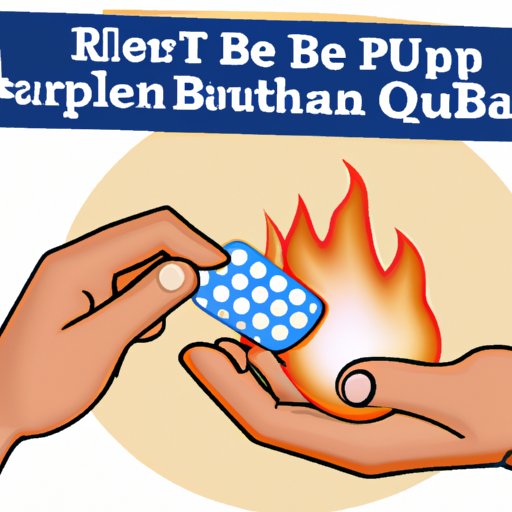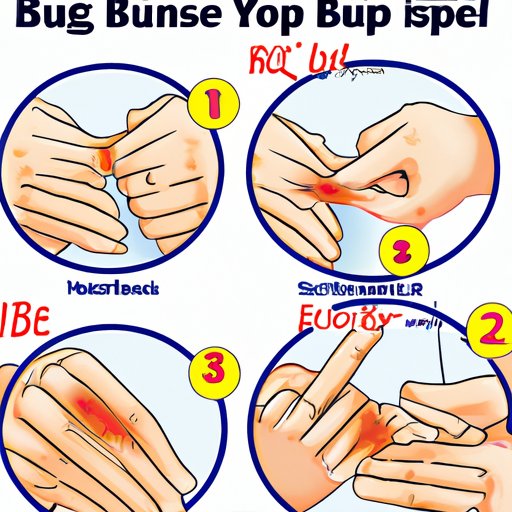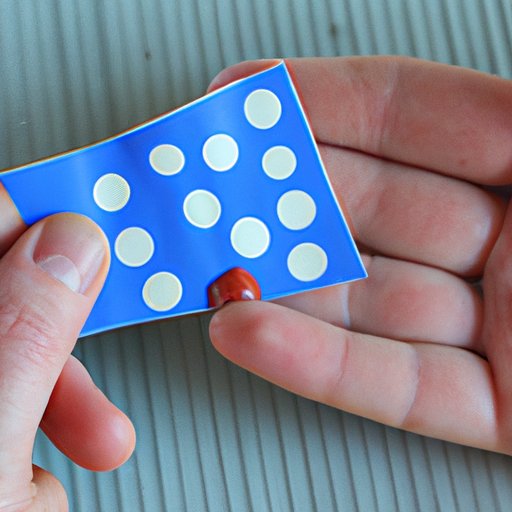
Understanding the Risks of Popping a Burn Blister
Burn blisters can be painful and uncomfortable. It’s only natural to want to relieve this discomfort by popping the blister. However, popping a burn blister is not recommended. Popping a burn blister can increase your risk of infection, scarring, and delayed healing.
The Danger of Infection
When you pop a burn blister, you are creating an opening in your skin. This opening provides an easy entry point for bacteria and other germs that can cause infection. The most common bacteria that cause infection in burn blisters are Staphylococcus aureus and Pseudomonas aeruginosa. If left untreated, these infections can spread to other parts of the body and lead to serious complications such as sepsis.
Risk of Scarring
Popping a burn blister can also increase the risk of scarring. When the blister is popped, the skin underneath is exposed which can lead to the formation of scar tissue. This scar tissue can be unsightly and may require further treatment to reduce its appearance.
Possibility of Delayed Healing
Finally, popping a burn blister can delay the healing process. When you pop a blister, you are removing the protective barrier that the blister provides. This means that the wound will take longer to heal since it is no longer protected from bacteria and other germs.

How to Care for a Burn Blister Without Popping It
If you have a burn blister, there are several steps you can take to care for it without popping it. These steps include cleaning the wound with soap and water, applying a cool compress, and covering the blister with gauze or a bandage.
Clean the Wound with Soap and Water
The first step in caring for a burn blister is to clean it with soap and water. This will help remove any dirt and debris that may be present on the wound. You should use a mild soap and gently scrub the area for several minutes. After cleaning the wound, rinse it with cool water and pat dry with a clean cloth.
Apply a Cool Compress
The next step is to apply a cool compress to the wound. A cool compress can help reduce swelling and pain associated with the burn. To make a cool compress, simply soak a clean cloth in cold water and wring out the excess. Place the cloth over the blister and leave it in place for 10-15 minutes.
Cover with Gauze or a Bandage
Finally, cover the burn blister with a sterile gauze pad or a non-stick bandage. This will help keep the wound clean and protect it from further damage. Make sure to change the dressing every day and keep the wound clean and dry.

Tips for Preventing and Treating Burns
In addition to caring for burns properly, there are several steps you can take to prevent and treat them. Some of these tips include avoiding exposure to extreme heat, wearing protective clothing, and using sunscreen.
Avoid Exposure to Extreme Heat
One of the best ways to prevent burns is to avoid exposing yourself to extreme heat. Stay away from open flames, hot surfaces, and hot liquids. Be especially careful when handling hot items in the kitchen or around the house.
Wear Protective Clothing
When working with heat or fire, wear protective clothing such as gloves and long sleeves. This will help protect your skin from getting burned.
Use Sunscreen
Finally, if you’re going to be outside for extended periods of time, make sure to apply sunscreen. This will help protect your skin from sunburns.
Exploring Natural Remedies for Healing Burn Blisters
In addition to the tips above, there are several natural remedies that can help speed up the healing process for burn blisters. Some of these remedies include honey, aloe vera, and coconut oil.
Honey
Honey has been used for centuries to treat wounds and burns. It contains antibacterial and anti-inflammatory properties that can help reduce inflammation, swelling, and pain associated with burn blisters. To use honey as a treatment, simply apply a thin layer of raw honey to the blister and cover with a sterile bandage.
Aloe Vera
Aloe vera is another natural remedy that can help speed up the healing of burn blisters. Aloe vera contains anti-inflammatory and antimicrobial properties that can help reduce inflammation and fight off infection. To use aloe vera as a treatment, simply break open an aloe vera leaf and apply the gel directly to the burn blister.
Coconut Oil
Coconut oil is a natural moisturizer that can help keep the skin hydrated and speed up the healing process. It also contains antibacterial and anti-inflammatory properties that can help reduce inflammation and pain associated with burn blisters. To use coconut oil as a treatment, simply apply a small amount of the oil to the affected area and cover with a sterile bandage.
What to Do When You Have a Burn Blister: A Guide for First-Aid Treatment
If you have a burn blister, it’s important to take the proper steps to treat it. Here is a guide for first-aid treatment of burn blisters:
Stop the Burning
The first step is to stop the burning. If the burn is caused by hot liquid or steam, run cold water over the area for at least 10 minutes. If the burn is caused by a flame, smother it with a blanket or towel.
Clean the Area
Once the burning has stopped, clean the area with mild soap and cool water. Be sure to pat the area dry with a clean cloth.
Apply Ointment
Next, apply an ointment such as petroleum jelly or aloe vera gel to the affected area. This will help keep the skin moist and speed up the healing process.
Cover the Blister
Finally, cover the burn blister with a sterile bandage or gauze pad. This will help keep the wound clean and prevent infection.
Seek Medical Attention
If the burn is severe or if you experience any signs of infection such as redness, swelling, or pus, seek medical attention immediately.
Conclusion
Burn blisters can be painful and uncomfortable, but popping them is not recommended. Popping a burn blister can increase your risk of infection, scarring, and delayed healing. To care for a burn blister, it’s important to clean the area with soap and water, apply a cool compress, and cover with a sterile bandage. There are also several natural remedies that can help speed up the healing process such as honey, aloe vera, and coconut oil. If the burn is severe or you experience any signs of infection, seek medical attention immediately.
(Note: Is this article not meeting your expectations? Do you have knowledge or insights to share? Unlock new opportunities and expand your reach by joining our authors team. Click Registration to join us and share your expertise with our readers.)
